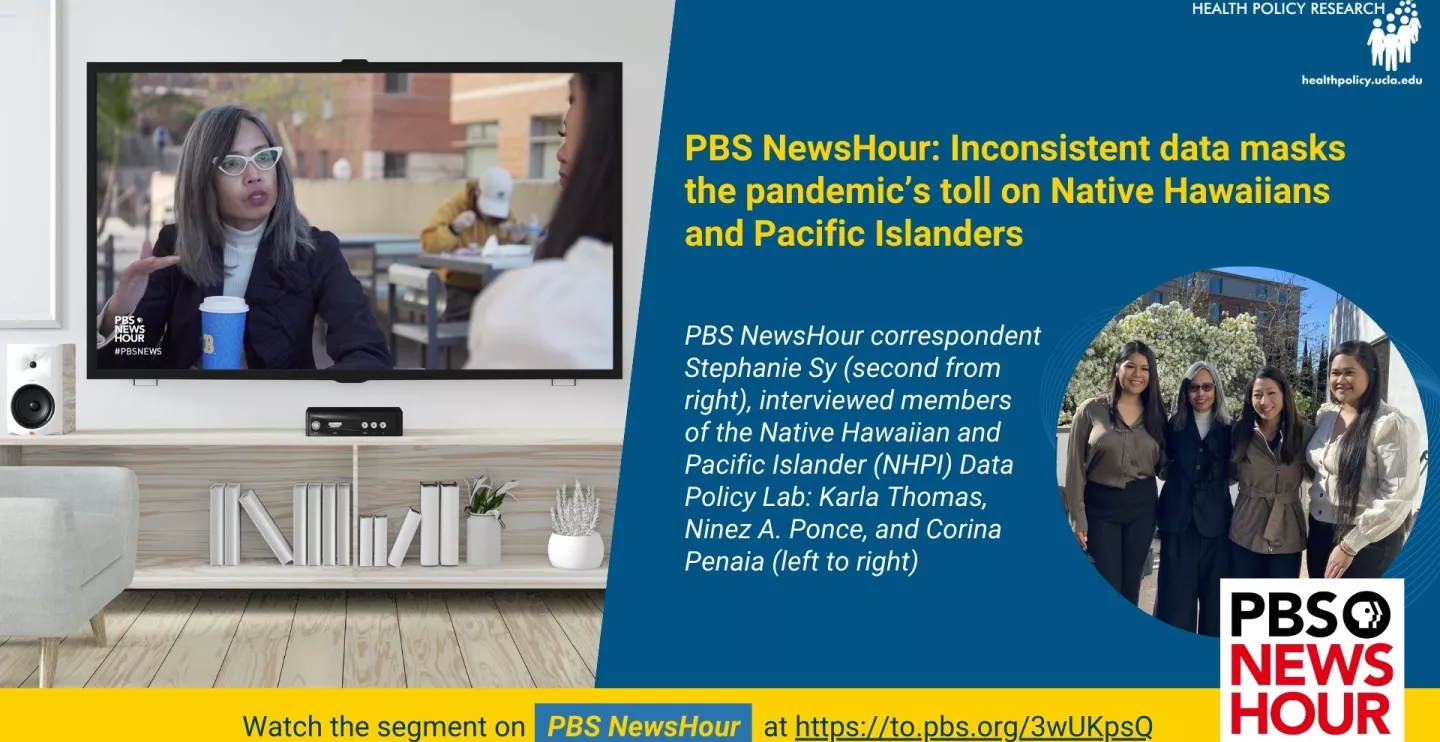Native Hawaiian and Pacific Islander Data Policy Lab Featured on PBS NewsHour
As COVID-19 swept across the United States it became clear that the virus disproportionately affected certain racial and ethnic groups
Media Contact:
UCLA CHPR Communications Team
The NHPI Data Policy Lab, housed at the UCLA Center for Health Policy Research, was created to address gaps in national COVID-19 data reporting and research in overlooked Native Hawaiian and Pacific Islander communities.
“As COVID-19 swept across the United States it became clear that the virus disproportionately affected certain racial and ethnic groups. But the outsized impact of the pandemic on one community — Native Hawaiians and Pacific Islanders — has been largely hidden because of inconsistent data collection and reporting,” says PBS NewsHour anchor Judy Woodruff.
PBS NewsHour reporter Stephanie Sy sat down with members of the Native Hawaiian and Pacific Islander (NHPI) Data Policy Lab to discuss the critical work the Lab is doing to address striking gaps within data and research for NHPIs.
"This community is like the canary in the coal mine," said Ninez A. Ponce, PhD, MPP, director of the UCLA Center for Health Policy Research (CHPR) and principal investigator of the NHPI Data Policy Lab.
"When the data first came out about COVID cases and deaths by race/ethnicity, I was, frankly, really shocked," said Ponce. In 14 of the 27 states with available NHPI data, Native Hawaiians and Pacific Islanders have the highest death rates from COVID-19, compared with any other racial or ethnic groups. "Other states didn't even have data on Native Hawaiians and Pacific Islanders."
Grouping them together in a broad category with Asians, a much larger population, hides their uniquely high rates. For example, in California, the COVID death rate for Asian and Pacific Islanders in 2020 was 75 per 100,000. But when the data for the two groups were separated, the rate for Native Hawaiian and Pacific Islanders alone jumped to 123 per 100,000, the highest in the state, while the rate for Asians remained roughly the same.
The PBS piece also features the work of the Arkansas Coalition of Marshallese and Melisa Laelan, who discusses the impact of COVID on the many Marshallese who work in poultry plants. Experiencing both COVID-19 illness and unemployment, the NHPI Data Policy Lab helped the group prepare its case for funding from the federal Coronavirus Aid, Relief and Economic Security (CARES) Act.
View the PBS NewsHour segment.
Read more about the NHPI Data Policy Lab in UCLA Magazine.














